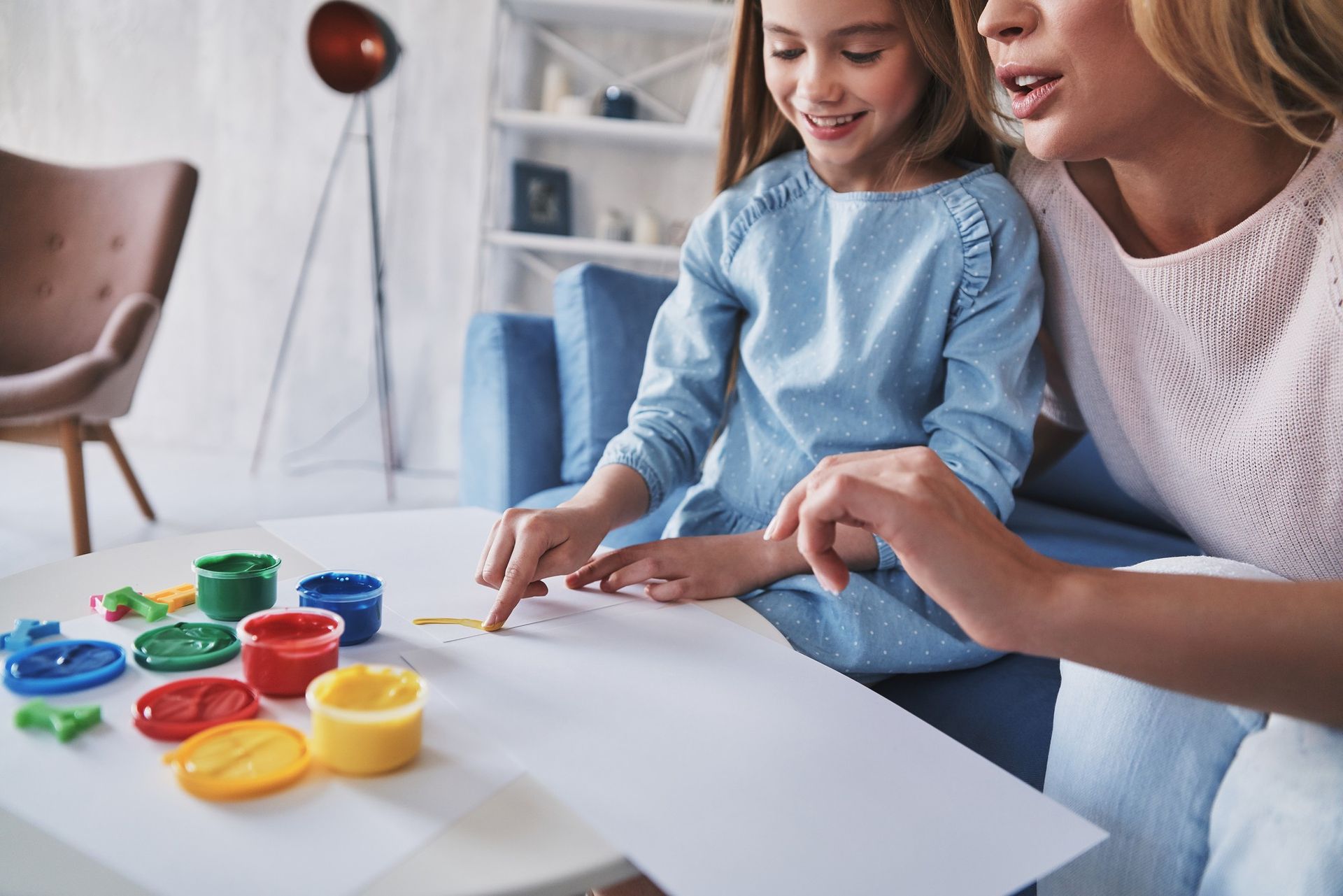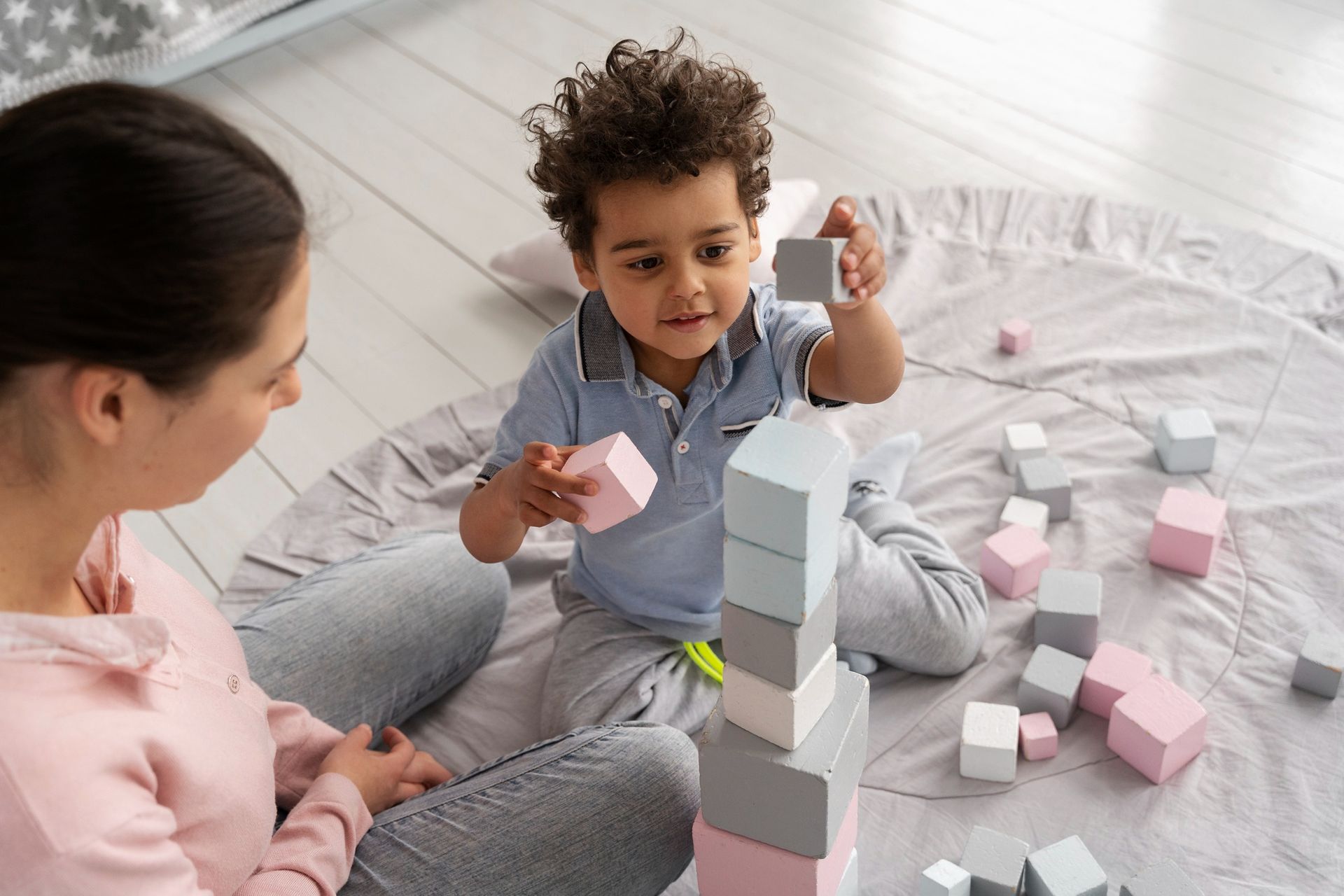Blue Jay In-Home ABA Therapy
Skip the Drive, Start the Progress
Blue Jay ABA brings professional autism therapy directly to your home
Your living room becomes the therapy room. Your kitchen table becomes a learning space. Your backyard becomes a place to practice social skills.
What is ABA therapy at home?
In-home ABA therapy is a form of Applied Behavior Analysis (ABA) conducted within the comfort of a child's own environment. ABA therapy is the leading approach for treating individuals with
Autism Spectrum Disorder
and other neurodevelopmental differences. While this therapy can occur in various settings such as schools and specialized centers, in-home ABA offers a unique opportunity for personalized treatment tailored to the child's natural surroundings.
Everything changes when your child feels safe
Your child learns to communicate during actual family conversations. They practice independence with their own toys, their own routines, their own daily schedule. Skills develop naturally because they're learning in the place where they'll actually use them.
Why Home Makes All the Difference
The Benefits Of In Home ABA Therapy
Familiar environment
In-home ABA therapy allows children to learn in a comfortable and familiar setting, reducing distractions and making it easier to adapt and learn new routines effectively.
Enhanced family involvement
Parents and family members can actively participate in sessions, gaining valuable insights and strategies to support their child's development. This involvement fosters a cohesive approach to skill-building and daily interactions.
Real-life skill application
Therapists address skills directly within the child's daily routines, such as personal hygiene, mealtime behaviors, and bedtime routines, helping children generalize skills more quickly and effectively.
Improved social skills
Including siblings and friends in therapy sessions helps children practice social interactions in real-world contexts, strengthening social skills, peer relationships, and overall social competence.
In-Home ABA Benefits
For The Skills That Matter Most
Communication
In-home ABA therapy helps children practice saying "hello" and "goodbye," asking for favorite toys or snacks, and following simple instructions like putting on shoes.
Social skills
Through activities like playing board games, children learn to share, take turns, say "please" and "thank you," and recognize facial expressions.
Self-care and daily living skills
Children learn to brush their teeth, wash their hands, set the table, sort laundry, pour drinks, and use utensils independently.
Behavior management
Therapy helps children reduce tantrums by using words to express frustration, practicing deep breathing for self-regulation, and
establishing positive routines, such as a consistent bedtime.
How home based ABA therapy works with Blue Jay ABA
Reach out:
Call our office today to inquire about our ABA services at home
Verify Insurance:
We simplify everything from insurance verification to enrollment, minimizing paperwork. We accept Medicaid and most major insurances.
We Assess:
Our care begins with a thorough in-home assessment. Our clinical team evaluates your child’s strengths and weaknesses to develop a personalized treatment plan.
Get Personalized Treatment:
Our team of BCBAs (Board Certified Behavior Analysts) and RBTs (Registered Behavior Technicians) collaborate to deliver high-quality, convenient care directly in your home, tailored to your child’s needs.
Achieve milestones:
Watch your child thrive with our advanced in-home ABA therapy programs and collaborative approach. Experience remarkable progress as your child gains confidence, independence, and essential skills.
Testimonials
- Hear from parents like you…
Preparing For Your In-Home Therapy Session
Before We Ring Your Doorbell
Designate a Dedicated Space:
Choose a quiet area free from distractions like TVs or electronic devices. Consistently using this space for each session will help your child feel more comfortable and promote a routine. Discuss the best location with your Board Certified Behavior Analyst upon their arrival.
Prepare Tools and Materials:
Ensure the space is equipped with a child-sized table and chairs. Have developmentally appropriate materials like sensory tools, toys, and puzzles ready. Store these items away when not in use to keep them special and effective for therapy.
Be Involved and Available:
Continue with your normal routines during therapy sessions, but always ensure a responsible adult is present in case the therapist needs to involve you. Actively participating and observing can enhance the therapy process. Your Board-Certified Behavior Analyst will review specific expectations with you.
FAQs about ABA therapy at home
Get Started With Blue Jay In-Home ABA Therapy
Your Living Room Is Waiting
Your child doesn't need to go anywhere to get the help they deserve. Blue Jay ABA brings professional autism therapy directly to your home. No car rides, no waiting rooms, no stress.
Just your child learning where they feel most comfortable. Just your family getting support without disrupting your daily life.







